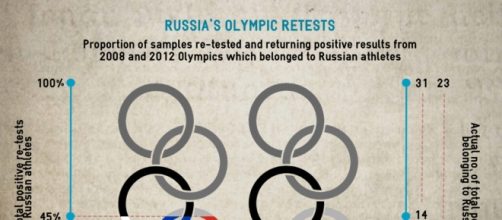The International Olympic committee (IOC) has placed special attention to promote a clean sporting atmosphere and fight against doping. As stated in the 2020 Olympic Agenda, the IOC has started special preventive measures to keep athletes clean from harmful substances during the Olympic Games at Rio 2016. With this in mind, the IOC has implemented a series of re-tests of stored samples from previous Olympic games-Beijing 2000 and London 2012
First and second waves of reanalyses.
The IOC announced today that reanalyzes of blood samples from athletes that participated in Olympic editions in Beijing and London resulted positive for 39 athletes from Beijing ad 15 from London.
This gives a total of 45 athletes found positive from the second round of reanalyses. This count plus the first round of reanalyzes accounts for 98 athletes. The third and fourth waves are planned to be conducted during and after the present edition of the Olympic Games at Rio.
The IOC intends to provide a clean environment for the present and future edition of the Olympic Games. In this pursuit, the committee has emphasized targeted pretests of athletes in identified sports and countries. To provide the clean environment, the IOC utilizes up to date advanced technological scientific equipment. It also reanalyzes the samples from past Olympic editions. The highly developed science gathering process started back in 2015 and is backed up by the World Anti-Doping Agency (WADA) and International Federations (Ifs).
The second round of retests was centered in medalists, since 23 out of 30 resulted positive from Beijing 2008. Thirty of those athletes were found to derive from four sports and 8 National Olympic Committees. The 15 athletes that were found substances in their samples represented two sports and nine National Olympic Committees. The athlete’s affected are being sent notice, following the applicable proceedings against them.
The IOC cannot disclose detailed information on any of the cases of prohibited substances; however, it will over the course of time.

